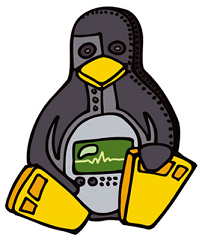Open Source Software and Hardware
The cornerstone of the "Open Source" philosophy is that recipients of technology should have access to all its building blocks, such as software code, schematics for electronics, mechanical designs, to study it, modify it, and redistribute it to others. Ever since releasing the WWW software under an open source model in 1994, CERN has continuously been a pioneer in this field: open source hardware (with the CERN Open Hardware Licence), Open Access (with the Sponsoring Consortium for Open Access Publishing in Particle Physics - SCOAP3) and Open Data (Open Data Portal for the LHC experiments).
CERN Open Hardware Licence

CERN Open Hardware Licence (OHL) is a legal framework to facilitate knowledge exchange on hardware design. Several years after its first publication in 2011, CERN released version 2.0 of the CERN Open Hardware Licence (CERN-OHL) in 2020, which governs the use, copying, modification and distribution of hardware design documentation, and the manufacture and distribution of any resulting products. The latest version uses simpler terminology, introduces three variants of the licence, and broadens its range to include designs that go from artistic to mechanical to electronic, as well as adapting the licence to cases such as application-specific integrated circuits (ASICs) and field-programmable gate arrays (FPGAs). It can even be used to license software.
The CERN–OHL is to hardware what the free and open source licences are to software.
Myriam Ayass, legal adviser for the CERN Knowledge Transfer group and one of the authors of the CERN-OHL
MORE INFORMATION:
Open Hardware at CERN Brochure
Version 1.0 of the Open Hardware Licence: Article in the CERN Courier: Hardware joins the open movement
Version 1.1 of the Open Hardware Licence: CERN Press Release
Version 1.2 of the Open Hardware Licence: Article on the CERN website: CERN releases new version of open hardware licence
